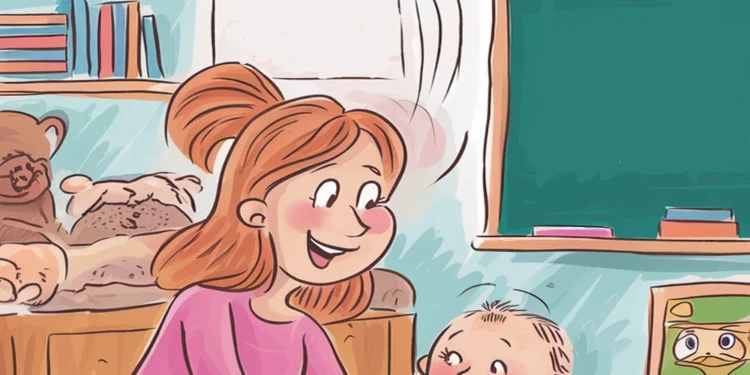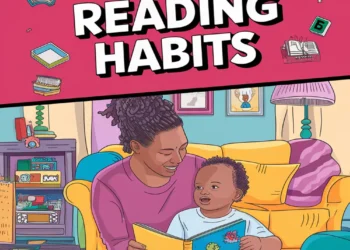To teach problem-solving skills early, encourage open-ended play to spark creativity and exploration. Promote critical thinking by asking thought-provoking questions. Integrate problem-solving games that develop teamwork and analysis. Model effective problem-solving strategies by verbalizing your thought processes. Foster a growth mindset by framing challenges as learning experiences. Finally, create real-world problem-solving opportunities to help them apply skills in practical situations. There’s much more to discover about nurturing these essential abilities.
Encourage Open-Ended Play
When you encourage open-ended play, you open up a world of creativity and problem-solving for children. This type of play empowers kids to explore their ideas without constraints, fostering imagination and innovation. By providing materials like blocks, art supplies, or costumes, you invite them to manipulate and experiment in ways that strengthen their critical thinking abilities.
Encourage them to make choices and develop their scenarios—this autonomy in play ignites curiosity and resourcefulness. You might observe how they overcome obstacles, collaborate with peers, or invent new uses for everyday objects. These experiences not only enhance cognitive skills but also build resilience, as children learn to adapt and find solutions. Prioritizing open-ended play lays a solid foundation for effective problem-solving throughout their lives.
Recommended Items
Discover our favorite picks to enhance your family’s problem-solving journey—happy exploring!
Promote Critical Thinking Through Questions
How can you ignite a child’s critical thinking skills effectively? One proven method involves asking thought-provoking questions that stimulate their imagination and reasoning. Instead of giving answers, guide them with inquiries that encourage exploration.
- Ask “What would happen if?” to spark curiosity.
- Use “How did you come to that conclusion?” to promote reflection.
- Challenge them with “Why do you think that is important?” to deepen their understanding.
This approach empowers kids to analyze situations and develop their own solutions, fostering independent thinking. Remember, it’s not just about finding the right answer; it’s about developing the process of inquiry. Engage them regularly with open-ended questions, and watch their critical thinking abilities flourish!
Integrate Problem-Solving Games
Incorporating problem-solving games into your child’s routine can be a powerful way to enhance their analytical skills. These games not only engage your child but also encourage critical thinking and creativity.
| Game Type | Benefits |
|---|---|
| Board Games | Promotes strategy and teamwork |
| Puzzle Games | Enhances spatial awareness and logic |
| Escape Room Challenges | Develops teamwork and critical thinking skills |
Choose games that match your child’s interests and make learning fun. Participating together can also foster a supportive environment where your child feels comfortable expressing ideas. This playful approach bolsters their confidence and equips them with essential skills for tackling real-world challenges later on.
Model Problem-Solving Strategies
Modeling problem-solving strategies sets a powerful example for your child, as they often learn best by watching you navigate challenges. When you encounter a problem, verbalize your thought process. This helps them understand how to approach difficulties effectively. Here are some strategies to model:
- Identify the problem: Clearly state what the issue is to make it tangible.
- Explore solutions: Discuss various options and weigh their pros and cons together.
- Evaluate the results: After choosing a solution, review its effectiveness and reflect on what could be improved.
Action Steps for Teaching Problem-Solving Skills
Foster a Growth Mindset
A growth mindset is essential for fostering resilience and adaptability in your child. When you encourage them to view challenges as opportunities to learn, you’re setting the foundation for effective problem-solving. Celebrate their efforts, not just their successes. Remind them that mistakes are valuable learning experiences rather than failures. Use phrases like, “What can we learn from this?” or “How can we approach it differently next time?” This approach helps them embrace challenges and develop persistence. Additionally, share stories of famous individuals who faced setbacks but persevered. By consistently reinforcing these ideas, you cultivate a mindset that thrives in the face of obstacles, ultimately equipping your child with the confidence needed to tackle life’s challenges effectively.
Create Real-World Problem-Solving Opportunities
Since children learn best through hands-on experiences, creating real-world problem-solving opportunities can be incredibly beneficial for their development. You can engage them in activities that promote critical thinking and creativity. Here are some practical ideas:
- Involve them in daily chores: Let them figure out how to organize their room or help with meal prep.
- Encourage outdoor exploration: Challenge them to build a fort or find their way on a nature trail using a map.
- Use art projects: Ask them to solve design challenges, like creating a unique gift from recycled materials.
These activities not only foster problem-solving skills but also instill confidence. By presenting real-world challenges, you’ll empower your child to tackle issues with a proactive mindset.













